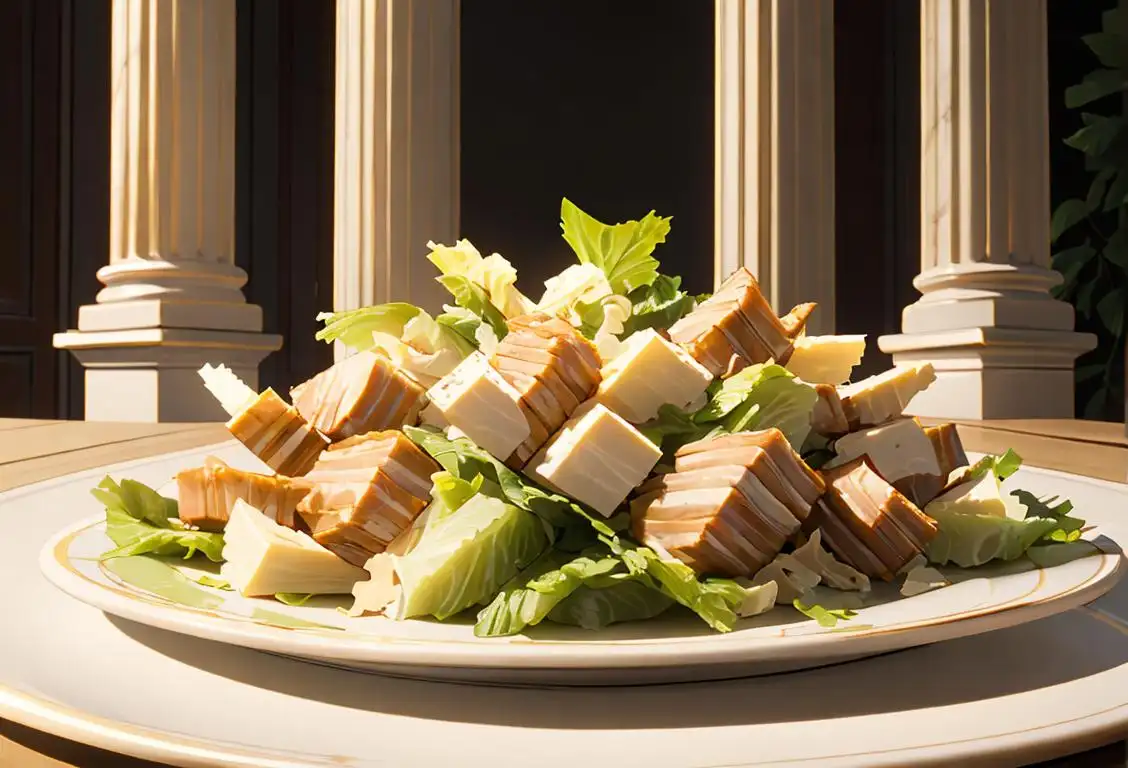National Tattoo Day

Hold the phone and clear the schedule! We’ve dug into the interweb's treasure troves of inky awesomeness to bring you the lowdown on National Tattoo Day. Whether you are more of a 'sailor-style anchor' aficionado or lean more towards 'exotic fire-breathing dragon' designs, we've got the goods on this historical day that goes skin-deep!
When is Tattoo Day?
It's national tattoo day on the 19th July.
The Inky Origins of this Ode to Skin Art
In the world of permanent ink, 19th July proudly stands as National Tattoo Day, etching its mark on our calendars and souls (or should we say, skin?). This day came into prominence, it seems, on the very same day in 2020, when a whopping 15101 online mentions were detected. The needle buzzed, the ink flowed, and the internet nearly buckled under the sheer weight of the tattoo appreciation.
Skin Deep Significance
Now you might be wondering why we need a day dedicated to tattoos. And to that, we raise our tattooed eyebrows and say, 'why not?' Tattoos are an expansive sea of individual stories and meanings, a unique language of artistry on skin. They have been considered sacred, rebellious, fashionable, and everything in between, contrasting as the colors in a tattoo artist's palette. This is more than just ink - it's a pulsating, colorful chronicle of our human experience!
A Permanent Mark on our Hearts
From showcasing love for our favorite food (Pizza tattoos, anyone?) to expressing super-fandom for sporting teams, and as a sensual symbol of unbreakable romantic bonds, tattoos hold a dear place in the hearts of many. And let's not forget the powerful tradition of using tattoos for remembrance, raising awareness, and indeed, just for fun. This isn’t about being edgy or rebellious – National Tattoo Day is our collective nod to this beautiful art form that lives and breathes with us.
History behind the term 'Tattoo'
3300 BCE
The Ancient Art of Tattooing
Tattooing can be traced back to 3300 BCE, where the first evidence of tattoos was found on the natural mummy known as Ötzi the Iceman. Ötzi, discovered in the Ötztal Alps in 1991, had over 60 tattoos, mainly consisting of simple dots and lines. These early tattoos were likely symbolic and had cultural and spiritual significance for the ancient civilization.
700 BCE
Polynesians and Pacific Islanders
The art of tattooing spread across various ancient cultures, with Polynesians and Pacific Islanders playing a significant role. Tattoos held great importance in their societies, representing social status, personal achievements, and cultural identity. Intricate designs and patterns were created, often using sharp bone combs or natural pigments.
1769 CE
Tattoos Encountered by Captain James Cook
In 1769, during his voyage to the South Pacific, Captain James Cook encountered tattoos while visiting Tahiti. He documented these intricate body art forms in his journals, introducing the term 'tattow' to English. The word was derived from the Polynesian word 'tatau,' which referred to the act of marking the skin with ink.
19th Century
Tattoos in Western Culture
During the 19th century, tattoos gained popularity among sailors and explorers who encountered indigenous cultures with rich tattoo traditions. This led to the spread of tattoos in Western culture, albeit with a different meaning. Sailors often got tattoos as symbols of personal experiences or achievements, such as crossing the equator or sailing a certain distance.
1891 CE
First Electric Tattoo Machine
In 1891, Samuel O'Reilly patented the first electric tattoo machine, revolutionizing the art of tattooing. The electric tattoo machine replaced the traditional hand-poking method, allowing for faster and more precise tattooing. This invention made tattoos more accessible and helped establish the foundation for modern tattooing techniques.
20th and 21st Century
Tattoos as a Form of Self-Expression
Over the past century, tattoos have evolved into a prominent form of self-expression and art. Tattoo artists around the world have pushed the boundaries of creativity and developed various styles, such as traditional, realistic, blackwork, and watercolor tattoos. Today, tattoos continue to hold personal significance for individuals, representing their passions, memories, and identities.
Did you know?
Did you know that the word Tattoo originally comes from the Samoan word 'Tatau' which means 'to mark something'? Without a doubt, Tattoo Day does exactly that, brilliantly marking our hearts and calendars with its significance.Tagged
Fun Awareness Heritage History Culture Art Appreciation Day Tattoos Personal ExpressionFirst identified
4th June 2015Most mentioned on
19th July 2020Total mentions
15101Other days
Tattoo Day
Pledge Of Allegiance Day
Teachers Day
Uprising Day
Womens Day
Rebel Day
Kitten Day
Intern Day
Caesar Day
Tourism Day








